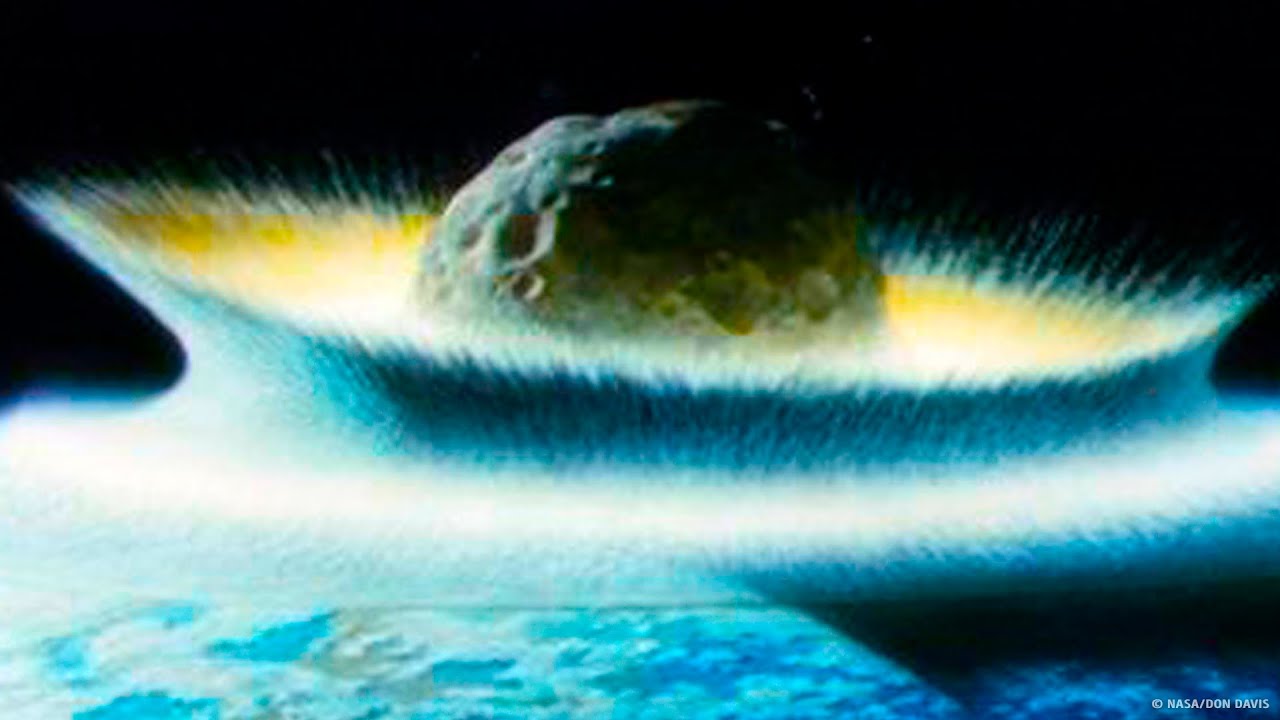If an Asteroid Falls in the Ocean, Will It Cause a Tsunami?
What’s the worst thing you could ever imagine happening? A massive wildfire? Maybe a huge flood? How about a gigantic asteroid hitting the Earth’s Ocean? Do you ever wonder what would happen to the Earth if it got hit by an asteroid in the middle of the Ocean?
Asteroids hit the Earth and the Ocean all the time, but the amount of damage they cause is so insignificant, it usually goes unnoticed. This is because they’re tiny in scale, and they get slowed down by the earth’s atmosphere. However, the bigger they get, the larger their threat. Every 2,000 years, a huge space rock about as big as a football field hits the Earth, and it can cause an enormous amount of damage…
Other videos you might like:
What If Dinosaurs Were Still Alive Today? https://www.youtube.com/watch?v=OeFnH4xux7w&
That’s What’ll Happen to the Earth In 1,000,000,000 Years https://www.youtube.com/watch?v=blf9PKCNXcs&
What If the Moon Disappeared Right Now? https://www.youtube.com/watch?v=ekDV2uHhuCI
TIMESTAMPS:
How often asteroids hit the Earth 1:20
Which kind of asteroid can cause damage… 1:56
or become a threat to the Earth’s civilization? 2:17
What if an asteroid hit the Earth 3:01
What would happen if it hit the Ocean? 5:16
The physics of a tsunami 6:45
The Eltanin Impact 8:39
#asteroid #meteor #brightside
Preview photo credit: NASA/Don Davis, https://www.nasa.gov/images/content/504775main_Massive_Impact-1.jpg
Animation is created by Bright Side.
SUMMARY:
– Asteroids hit the Earth and the Ocean all the time, but the amount of damage they cause is so insignificant, it usually goes unnoticed.
– Asteroids have rocky bodies, and most of the time, they’re small in size. They’re usually inactive, and just hang around, orbiting the Sun.
– Hundreds of tons of dust and small particles hit the Earth every day. Since they’re so tiny, we don’t really notice them.
– Approximately once a year, a car-sized asteroid hits the Earth’s atmosphere. It turns into a huge fireball and burns up completely before it touches the planet’s surface.
– Any asteroid that’s about .5 mile would take a serious toll to the area of impact.
– Every a few million years, a ginormous asteroid comes along, and it becomes a threat to the Earth’s civilization.
– Around 66 million years ago, an asteroid that was approximately 9.3 miles in diameter hit the Earth. It left the impact crater that we all know today as the Chicxulub impactor.
– The collision caused a ginormous tsunami, with waves as tall as 330 feet.
– A cloud of blazing ash, dust and steam spread from the crater as the asteroid was tunneling underground. Particles and debris from the impact exited the Earth’s atmosphere.
– During this catastrophe, a lot of carbonate rocks were destroyed, which produced a huge amount of carbon dioxide in the atmosphere, and created a greenhouse effect.
– But what would happen if a smaller asteroid hit the Ocean instead of the Earth? Will it cause a tsunami? Well, the short answer is, no.
– The waves will be local in the area of impact, but a strong Tsunami won’t be formed. The physics of a tsunami are a bit different.
– It’ll cause some damage. To be more specific, the splashes that will form will travel tens of miles away.
– It’s undeniable that strong winds and powerful shockwaves will cause damage to the surface of the planet. So, the further away the impact is from populated areas, the better.
– What would really happen is that a huge wave would form at the area of impact in the Ocean, but it would break immediately, resulting in very little energy travelling further.
Music by Epidemic Sound https://www.epidemicsound.com/
Subscribe to Bright Side : https://goo.gl/rQTJZz
—————————————————————————————-
Our Social Media:
Facebook: https://www.facebook.com/brightside/
Instagram: https://www.instagram.com/brightgram/
5-Minute Crafts Youtube: https://www.goo.gl/8JVmuC
Stock materials (photos, footages and other):
https://www.depositphotos.com
https://www.shutterstock.com
https://www.eastnews.ru
—————————————————————————————-
For more videos and articles visit:
http://www.brightside.me/



![[ID: sdD8k91Ivxw] Youtube Automatic](https://okumasaati.net/wp-content/uploads/2020/10/id-sdd8k91ivxw-youtube-automatic-360x203.jpg)
![[ID: h2MlS09KJP4] Youtube Automatic](https://okumasaati.net/wp-content/uploads/2021/05/id-h2mls09kjp4-youtube-automatic-360x203.jpg)
![[ID: qJzcv690pa8] Youtube Automatic](https://okumasaati.net/wp-content/uploads/2020/10/id-qjzcv690pa8-youtube-automatic-360x203.jpg)
![[ID: 9WHewPjWl28] Youtube Automatic](https://okumasaati.net/wp-content/uploads/2020/10/id-9whewpjwl28-youtube-automatic-360x203.jpg)
![[ID: 1T8JM0_NVPk] Youtube Automatic](https://okumasaati.net/wp-content/uploads/2020/10/id-1t8jm0nvpk-youtube-automatic-360x203.jpg)
![[ID: xbaxghygAp4] Youtube Automatic](https://okumasaati.net/wp-content/uploads/2020/10/id-xbaxghygap4-youtube-automatic-360x203.jpg)